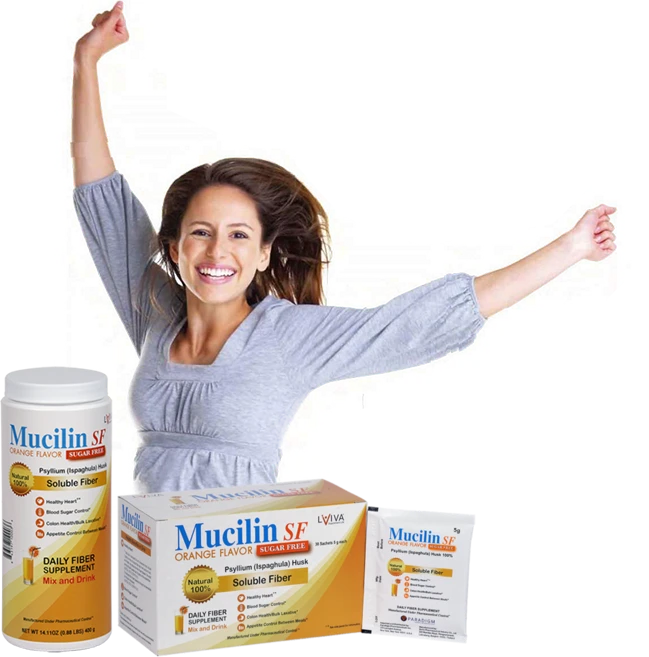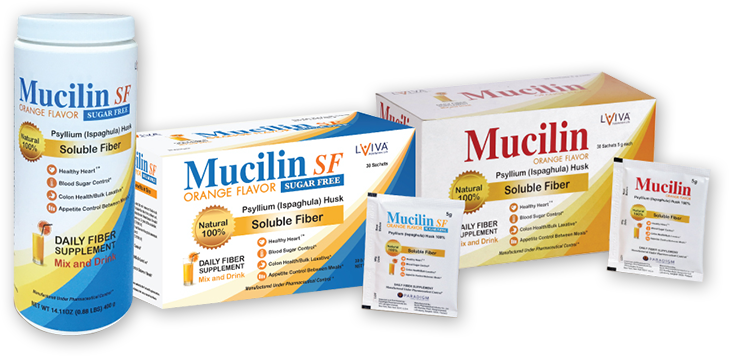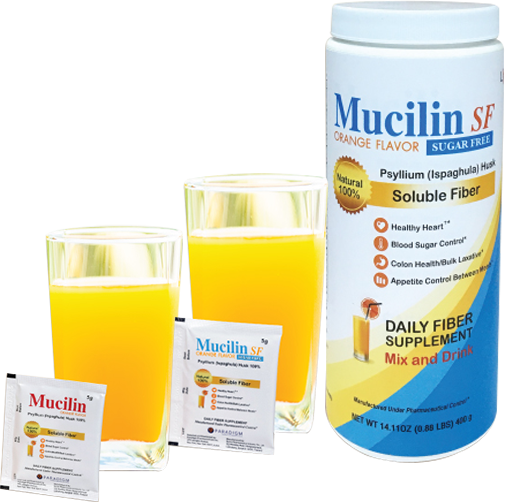
Tastes Better, Mixes Smoother, Made Safer
Does The Psyllium Husk You Take Meet The Mucilin® Standard?
Not All Psyllium Husk Products are Equal
Psyllium husk, culled from the seeds of a plant known as Plantago ovata, has become a generic description of all psyllium husk products in the market. But some products may contain crushed seeds along with the husk. It's the husk which expands when mixed with a liquid and delivers the benefit, not the seed. The US FDA requires that for a Psyllium husk product to be labeled as a soluble fiber it must contain no less than 95% husk. Since the other 5% is for the ingredients necessary to make the final product, the product must be 100% pure Psyllium husk.

Mucilin®️ fiber is 100% pure husk of Highest Quality
The quality of Psyllium husk depends on the plant and its cultivation. Higher the quality, the greater the swelling properties, and the better its efficacy. Mucilin®️ expand 40 times it weight, the highest expansion index possible, and forms and forms a smooth jello like bulk with a drink of water or juice. Poor quality, especially a product with seeds, forms a clumpy mass with clouding impurities.

Manufacturing Quality Matters!
Mucilin®️ is manufactured in an accredited pharmaceutical plant as a pharmaceutical product, with the same manufacturing and quality controls from raw materials to finished product as used in the production of medicines for blood pressure and cholesterol to liver and epilepsy at the same facility. Mucilin®️ is approved as a pharmaceutical product for sale in many countries by regulatory authorities.
NON- GMO
Mucilin®️ is non-GMO natural fiber. We audit our suppliers regularly and test each batch of the fiber we put into production for our finished products.

Mucilin®️ meets the highest US and European regulatory standards
Mucilin®️ meets the latest standards for quality and safety--swelling index, limits on contaminants such as foreign matter, yeast and mold--established by the US Pharmacopeia (USP41) and British Pharmacopeia (BP2019). Each batch is tested for compliance before it is released for sale.
Featured collection
The Mucilin® Difference
Psyllium husk Fiber
Dear Customer,
Mucilin® is a pharmaceutical-grade psyllium husk product which stands apart from nearly all similar products sold in the U.S in terms of Quality--and Taste.
From raw materials to the final product, Mucilin® is manufactured under the same strict production and quality control standards as required for pharmaceutical products. We test each batch before we release to the consumer to make sure there is no moisture in it--plant-based fibers are highly susceptible to it--which would attract microbes and other contaminants on the shelf. Read more
My Doctor Recommends MUCILIN®️








